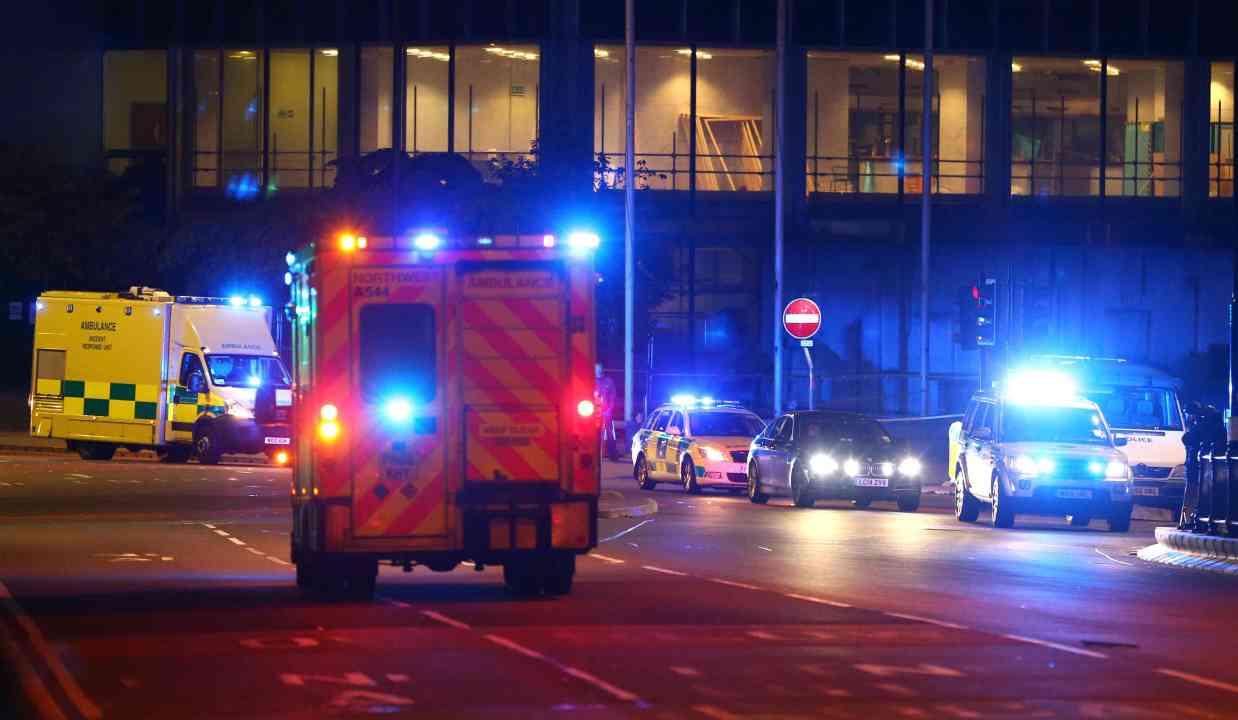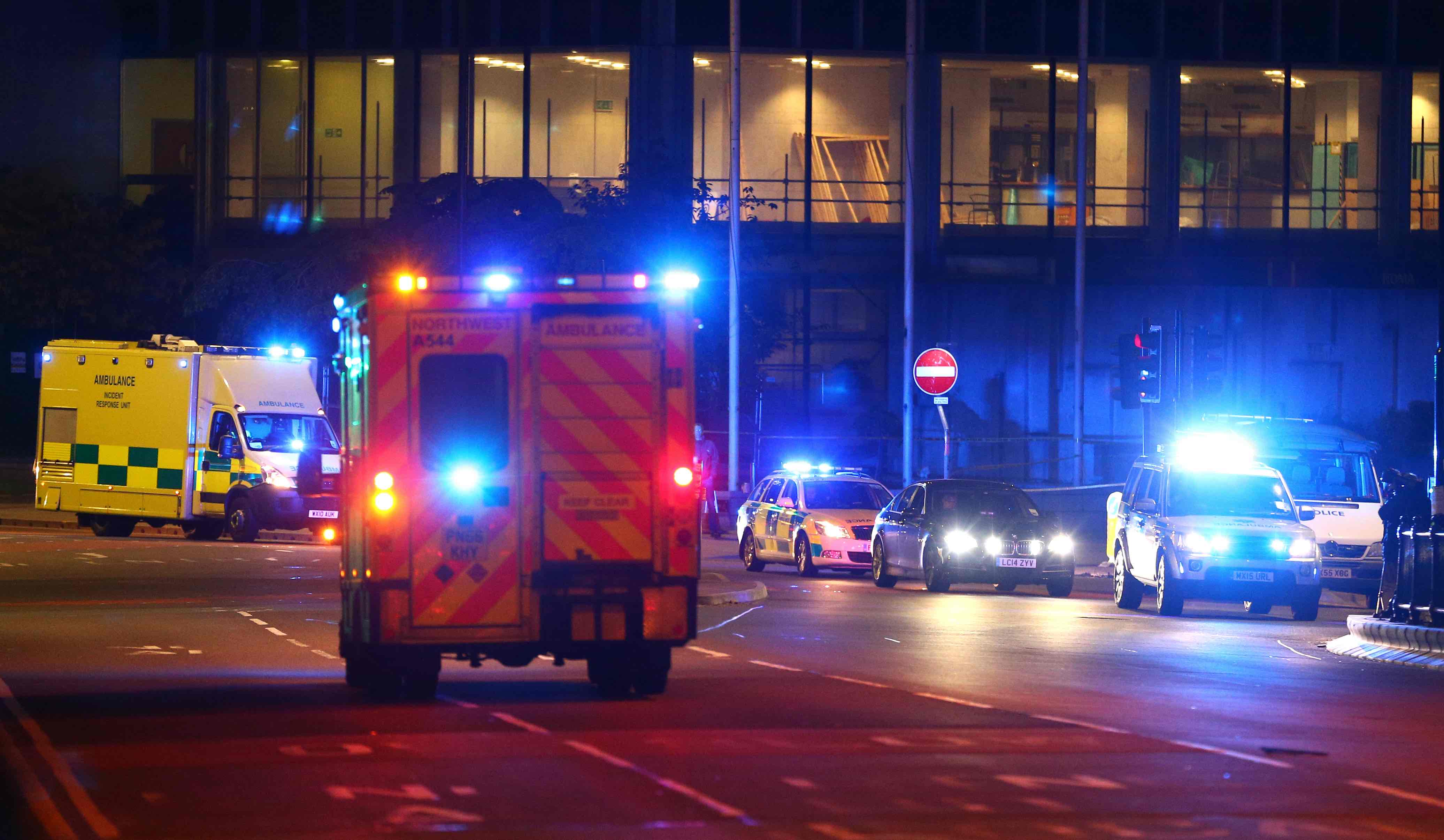‘I know that what I have revealed, while increasing public knowledge, will raise other questions that I have not been able to answer,’ Sir John Saunders said, in issuing his final report into the Manchester Arena bombing.
‘I did ask the questions, I did get answers, but for the reasons I have given I have not been able to report publicly what those answers were,’ he added.
The report gave us a glimpse into the decision-making of MI5, but only a glimpse. Despite the thoroughness with which the chairman approached his task, it does leave unanswered questions.
Key among them are the two ‘pieces of intelligence’ that MI5 learned in the months before the bombing and why they didn’t they act on them. The chairman said there was a ‘realistic possibility’ that ‘actionable intelligence’ could have been obtained which might have led to preventing the attack that killed 22 people in May 2017.
MI5 had told Lord Anderson, who examined their own internal review, that the officers analysing the intelligence took it to be ‘criminal activity’, possibly connected to drug dealing or organised crime. Only in ‘retrospect’ did they discover the intelligence was ‘highly relevant to the planned attack’ although ‘the significance of it was not fully appreciated at the time’, they said.
Another question that remains at the end of the inquiry is whether the sale of hydrogen peroxide is even necessary
However, Sir John said: ‘Having heard from those witnesses who handled [the intelligence], I do not consider that these statements present an accurate picture.’
When Sir John questioned three officers in person, during ten days of closed hearings, they told him they realised at the time that the second piece of intelligence related to ‘activity of pressing national security concern’. Nevertheless, a report that should have been written on the same day was not delivered and when it was, it did not contain ‘sufficient context’.
The second piece of intelligence ‘gave rise to the real possibility of obtaining information that might have led to actions which prevented the attack’, Sir John said. Had ‘further investigative action’ been taken, it could have given rise to information which meant that when Salman Abedi returned to Manchester after a month in Libya, he would have been treated ‘extremely seriously’ by MI5.
No timescale was provided for when the MI5 officer’s report was delivered but the chairman said it was too late to stop Salman Abedi when he returned, four days before the bombing.
At that point, Abedi was probably carrying the switch he used to set off his bomb, which he brought back from Libya. Had he been followed on his return, MI5 could have seen him visiting a Nissan Micra which was parked up at a block of flats in South Manchester and contained his stash of bomb-making chemicals.
‘There is at least the material possibility that opportunities to intervene were missed’, Sir John said.
During two days of open hearings, the Manchester Arena Inquiry heard from MI5’s director-general for counter-terrorism, referred to only as Witness J.
He told the inquiry:
‘We assess that Salman Abedi was part of a group of individuals in South Manchester who had links to a serious crime gang.’
The officer added:
‘The challenge for us is when individuals are involved in terrorism and crime, some of their behaviour and activity can look the same. It can be difficult to distinguish, for example drug dealing and fraud from national security activity.’
Unless the five officers who spoke in the closed hearings changed their story, that does not appear to have been the real position.
It shows the problems with taking ‘corporate’ witness statements during inquiries without questioning the individuals who made the decisions, something Sir John was keen to correct.
The question remained, however, what was the information? What activity that was ‘highly relevant to the planned attack’ was taking place in the months before the attack and why might that be mistaken for possible criminal activity?
The families of the victims certainly wanted to know and Sir John apologised to them in the report, saying his decision to withhold information on national security grounds was ‘particularly difficult for the bereaved families’.
They argue that it is only by understanding the scale of the failings at MI5 that they can be sure that lessons have been learned.
Some details have already been revealed in the inquiry proceedings and in the trial of Hashem Abedi, the younger brother of the bomber, now serving life in jail for helping build the bomb.
Salman Abedi, the bomber, had already appeared in MI5 investigations more than 20 times over the course of seven years and the Security Service had treated him as a ‘de facto’ subject of interest for more than a year between June 2015 and August 2016, nine months before the bombing.
Salman and Hashem Abedi persuaded two of their cousins and a friend to buy them sulphuric acid, using the Amazon website, telling them it was to top up a car battery, with the main purchases made on 2 March and 15 March through a third-party seller in Italy. The friend then left the country.
That was followed by the purchase of hydrogen peroxide, the main ingredient for the bomb, this time using fake Amazon accounts set up by the brothers themselves but using two different friends’ payment details.
Hydrogen peroxide can also be used for hydroponics, the process used to grow cannabis plants and both Salman and Hashem Abedi had been drug users in the past and some of their friends were dealing drugs.
On 19 and 20 March, three attempts were made to purchase hydrogen peroxide on an Amazon account with a friend’s out of date debit card, using the wi-fi at an address in Victory Street, Fallowfield, connected to a member of a drug dealing gang.
On 22 March, at 5.43pm, a month before the attack, the wi-fi at the Golden Tandoori on Great Ancoats Street, where Hashem worked as a driver, was used to set up a Gmail account in the name Yu Chang.
Straight afterwards, the Gmail account was used to set up an Amazon account that was then used to order five five-litre bottles of hydrogen peroxide from a third-party seller which was to be delivered to an address the brothers had borrowed in Lindum Street, Rusholme.
On April 3 at 2.34pm, a Gmail account set up by the brothers using the chilling address Bedab7Jeana@gmail.com – meaning ‘We have come to slaughter’ – and the subscriber name Chang Yu – was logged into using the public wi-fi at Hulme Market.
Within 15 minutes, it had been used to create an Amazon account in the name John O’Brian, and at 3.07pm an order was placed for two five-litre canisters of hydrogen peroxide from a third-party seller in Glasgow on Amazon, using the delivery address in Lindum Street.
The purchases were paid for using the bank accounts of a friend, who then falsely claimed he had been defrauded.
Once the chemicals had been delivered, the brothers used a Toyota Aygo to drive them across Manchester to the kitchen of a flat in a tower block in Blackley, where they began mixing them to turn them into explosives.
Which of these incidents came to the attention of MI5, or how the information was received, is not important but sources confirm that they did receive intelligence about the purchases.
The intelligence was ‘not straightforward’ but exactly why they did not act on it immediately is still not clear.
It is worth pausing here to say that MI5 have stopped 37 ‘late-stage’ attack plots since the start of 2017. Although they are often covered in the newspapers, for obvious reasons, their successes get very much less publicity than their failures.
Ken McCullum, the director-general, said he was ‘profoundly sorry’ that MI5 did not prevent the attack. His officers go to work every day to stop terrorism. It is a tough job and the decisions they make can be the difference between life and death.
However, there are measures that could make that job easier. The families of the victims have expressed concern about the supply of bomb-making chemicals.
In legal submissions to the inquiry, their lawyers said the procedures for identifying the purchase of substances ‘were not then and are not yet sufficiently robust’.
‘This issue is an important one’, they said. ‘Had there been more stringent controls, it is possible that the purchases and attempted purchases would have been detected and the attack frustrated.’
The regulations ‘did not sufficiently reflect threats from chemically made explosives’ even though the government was aware that Isis and other organisations were disseminating information intended to teach would-be terrorists how to make just such explosives, the families said. The government’s approach was ‘out of touch with the reality of methods of purchase commonplace in the 21st century’, they added.
That was ‘unsurprising’, given that a government witness admitted the regulation of explosives precursors at that time was still directed principally towards prevention of the types of explosives used during the Troubles in Northern Ireland.
‘Many of the ways in which it was suggested that suspicious transactions could be identified are matters, such as the demeanour and apparent ignorance of the purchaser, of which there would usually be no evidence if the purchase took place online,’ Duncan Atkinson KC, for the families, said.
Online marketplaces were not a new phenomenon in 2017 and ‘the fact that there was no update to the system of controls and guidance to vendors to reflect the obvious changes in retail is a further respect in which the government failed to act’, Mr Atkinson said.
However, the chairman said he was not making any recommendation in relation to the acquisition of precursor chemicals. ‘This is deliberate’, he added. ‘I am satisfied that the Intelligence and Security Committee of Parliament is seized of this issue and ensuring that as much as can be done is being done.’
Another question that remains at the end of the inquiry is whether the sale of hydrogen peroxide is even necessary. It was the main ingredient in the bombs used in the attacks on London Transport of 7 July 2005, which killed 52 people, and the main ingredient in the failed bombings of 21 July 2005.
The brothers almost certainly used a video produced by Isis in November 2016 that provided clear step-by-step instructions demonstrating how to make a bomb using an explosive called triacetone triperoxide (TATP) – also known as Mother of Satan.
The main ingredient of TATP is hydrogen peroxide and that video is still circulating in closed forums on messaging apps such as Telegram. Ahmed Hassan, whose bomb partially detonated on a tube train at Parsons Green in September 2017, also used TATP and had bought his ingredients on Amazon.
Hydrogen peroxide can be used in hair dye, as a bleaching agent and disinfectant, but it is unclear why anyone not involved in manufacturing those products might need it in pure form.
One of the lessons that greatly reduced the number of large-scale bomb attacks in Northern Ireland during the troubles, was the outlawing of ammonium nitrate fertiliser. Perhaps it is time we found an alternative to hydrogen peroxide before it is used in yet another attack.







Comments